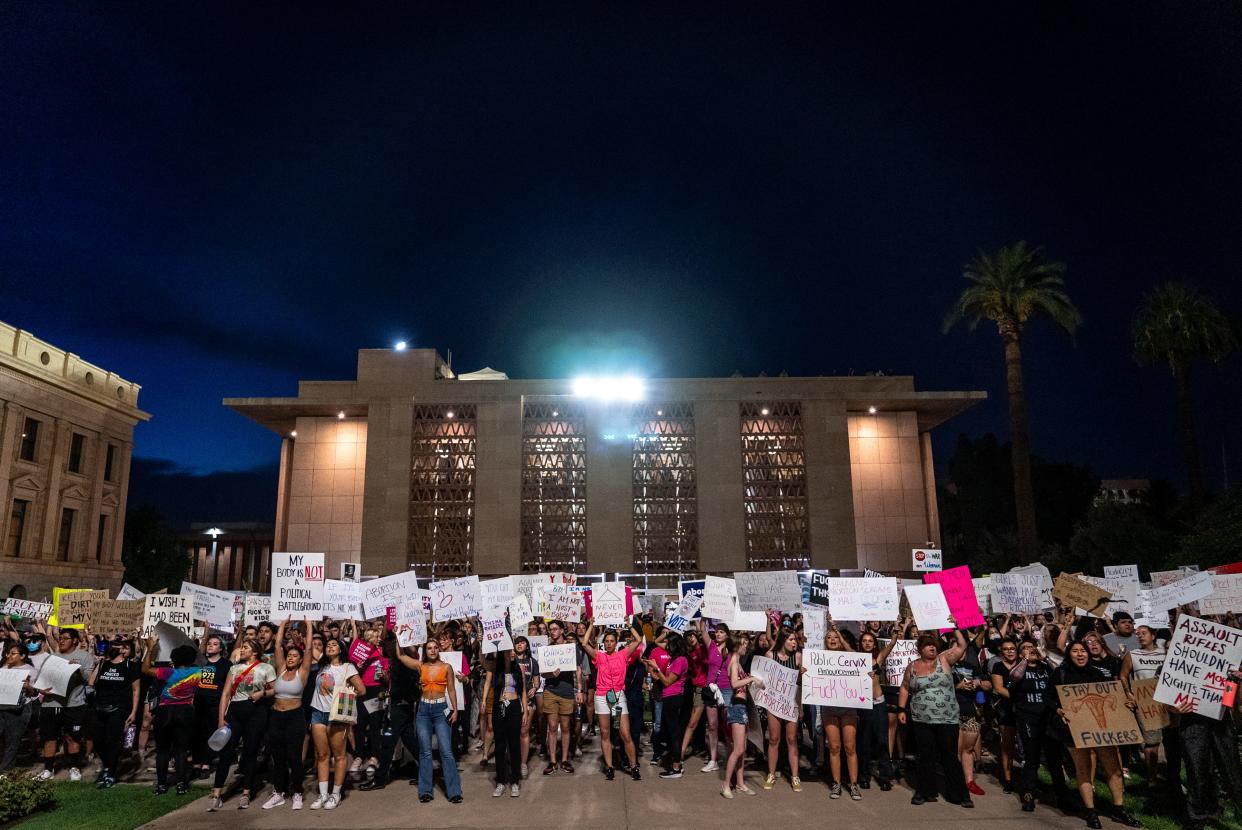Will Arizonans soon need to seek abortion care in more progressive … Mexico?

If what happened in Mexico on Wednesday would have happened in, say, the 1980s, Americans would have said, “It’s about time.”
If it had happened in the 1990s we would have said, “What took them so long?”
If it had happened in the 2000s, or the 2010s, or even in the early 2020s we would have huffed and puffed and declared that it was way, WAY overdue.
But it happened on Wednesday, when Mexico’s Supreme Court decriminalized abortion nationwide, and suddenly the United States — which had been 50 years ahead — is now 50 years behind.
Arizona could be 100 years behind
And possibly 100 years behind in Arizona, where the state Supreme Court will consider whether to put in force an 1864 abortion ban that comes with a two- to five-year prison sentence for anyone providing an abortion.
The revival of that law became possible when the U.S. Supreme Court tossed nearly 50 years of precedent and overturned the Roe v. Wade decision that had affirmed a woman’s constitutional right to abortion.
The Arizona Legislature had passed a 15-week abortion ban, but that law is challenged by the right-wing Alliance Defending Freedom (backed by many of the Republicans in the Legislature) who are hoping to put the never-repealed 1864 law back into effect.
After Roe v. Wade: How reproductive rights have changed
In 2022, a poll conducted by the nonpartisan Public Religion Research Institute found that 62% of Arizonans support legalized abortion.
Group would put abortion rights on ballot
A coalition of abortion rights advocates is counting on that majority to pass a state constitutional amendment guaranteeing abortion rights up to fetal viability, or around 24 weeks.
They’re hoping to put such a question on the ballot but will need to collect at least 383,923 valid signatures to do so. The group behind what they call the Arizona for Abortion Access initiative hopes to start collecting those signatures this month.
Gov. Katie Hobbs issued an executive order that bars county attorneys from prosecuting abortion law violations. But that isn’t a solid solution.
When the initiative proposal was announced, she issued a statement saying, “I’ve been a lifelong advocate for Arizonans’ reproductive freedom, and I’ve repeatedly said that I do not believe the government or politicians should be in the business of making personal healthcare decisions. I’m confident that Arizonans will vote for reproductive freedom next November.”
Should that not happen, and Arizona law reverts to the draconian past, women here may have to seek care in what would be the more health conscious and progressive locale of … Mexico.
Reach Montini at ed.montini@arizonarepublic.com.
For more opinions content, please subscribe.
This article originally appeared on Arizona Republic: Will Arizona seek abortion care in a more progressive ... Mexico?

